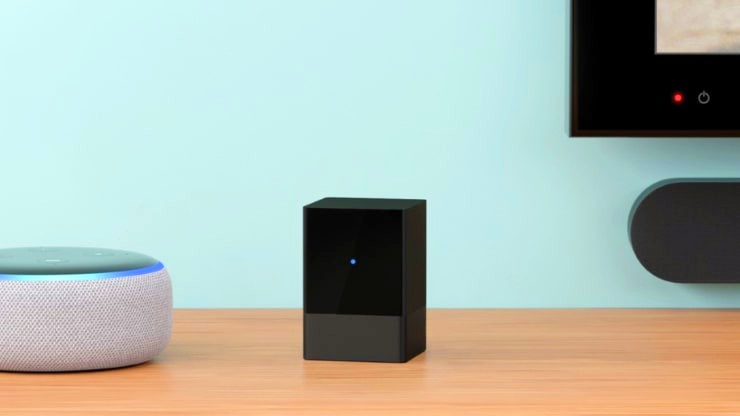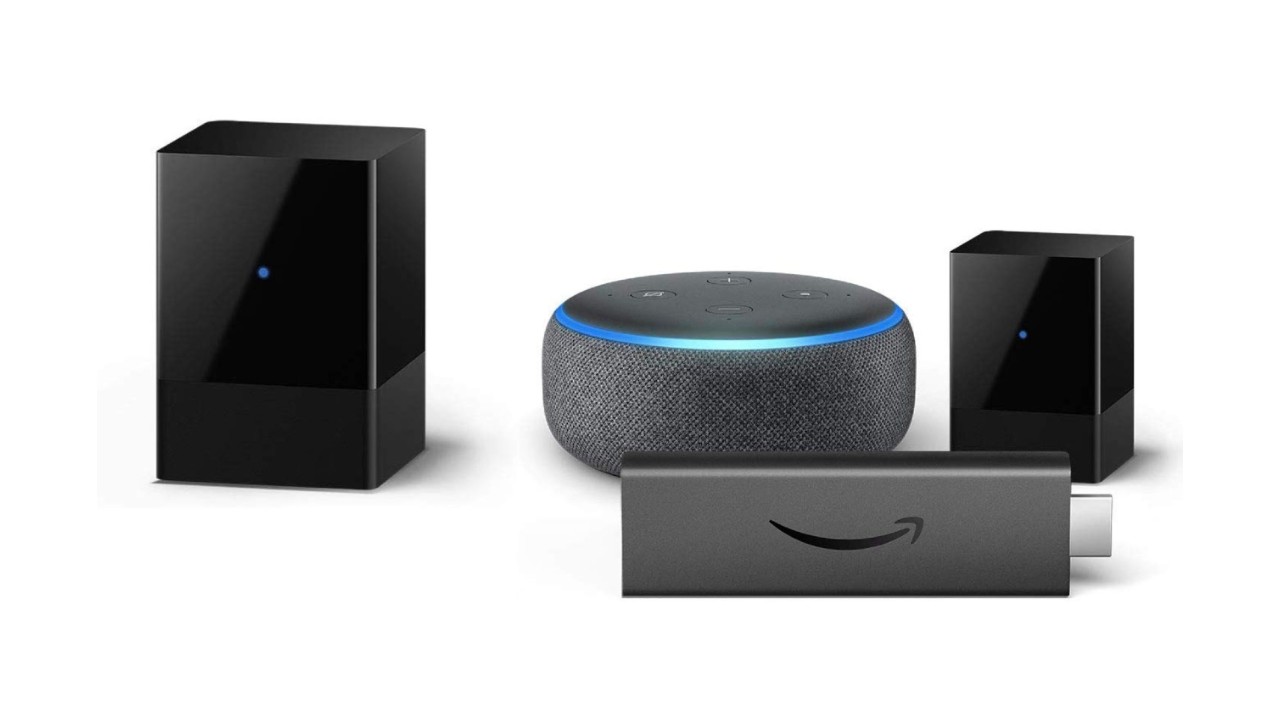New Amazon Fire TV gadget turns your voice into your TV's remote control
You'll need a Fire TV Stick and an Echo speaker

Sign up for breaking news, reviews, opinion, top tech deals, and more.
You are now subscribed
Your newsletter sign-up was successful
If you have an Amazon Fire TV Stick and an Echo speaker at home, you've probably worked out that you can control your content using your voice, thanks to Alexa's smarts.
Until now though, you've never been able to control your actual hardware, like turning your TV on and off, for example – and that's where the new Amazon Fire TV Blaster comes in.
- Read our Amazon Echo (2019) review
- What's the best 4K TV you can buy?
- Check out the best Amazon Black Friday deals
This infrared companion device works alongside your existing Fire TV device and Echo speaker to extend Alexa's control, which means you can switch HDMI inputs on your TV, adjust your AV receiver, change the volume on your soundbar, and even power your TV on and off, totally hands-free.

A Fire TV Cube alternative
Up for preorder now, the Amazon Fire TV Blaster will be available to buy from December 11 for $34.99 / £34.99 (around AU$50). If you preorder, you're also eligible to order a bundle consisting of Fire TV Stick 4K, Echo Dot (3rd Gen) and Fire TV Blaster for $79.99 / £86.98, which is a pretty substantial saving.
The new Fire TV Blaster doesn't work on it's own; you'll need a Fire TV Stick, Fire TV Stick 4K or Fire TV (3rd Gen), as well as an Echo speaker to be able to give Alexa voice commands to control your home cinema setup.
If you already have these devices at home, the Fire TV Blaster represents a cheaper alternative to the $119 / £109.99 (around AU$175) Fire TV Cube, which also works with Alexa, to control the device (plus your soundbar, TVs, AV receiver and cable or satellite box) with your voice.
- Read our Amazon Fire TV Cube review
Sign up for breaking news, reviews, opinion, top tech deals, and more.

Olivia was previously TechRadar's Senior Editor - Home Entertainment, covering everything from headphones to TVs. Based in London, she's a popular music graduate who worked in the music industry before finding her calling in journalism. She's previously been interviewed on BBC Radio 5 Live on the subject of multi-room audio, chaired panel discussions on diversity in music festival lineups, and her bylines include T3, Stereoboard, What to Watch, Top Ten Reviews, Creative Bloq, and Croco Magazine. Olivia now has a career in PR.